We’ve rounded up the best free 3D prints for sci-fi fans with models from classic science fictions franchises like Star Wars, Doctor Who, Dune, and Tron.
3D printers may not be the stuff of science-fiction but sometimes, they feel as if they should be. Feed in a reel of plastic (or resin) and a design and out comes a three dimensional object. Some of the more complex model files even feature moving or bendable parts.
So with that in mind, why not put your device to use by printing out some eye-catchingly cool sci-fi models? Whether you’re into Dune, Star Wars, Star Trek or a less famous sci-fi show such as Lexx, someone will have turned at least one of that property’ elements into a 3D printable. There’s so many, in fact, it can be hard to know where to start.
That’s why we’ve rounded up ten of the best 3D prints for sci-fi fans. All except one can be printed in one piece and even better, they’re all free. All you need to bring these models to life is a 3D printer and the files found below. Check out our best 3D printers guide if you want to get into the hobby.
There are some printing tips at the bottom of this page to help you get a perfect print, first time too. Now, let’s dive in.
1. Baby Yoda (Star Wars: The Mandalorian)
You can call him “Grogu” or “The Child”, but this adorable green almost-Jedi will always be Baby Yoda to us. The world went wild for him when he appeared at the end of Episode 1 of The Mandalorian, to the point where Disney’s merchandising department couldn’t keep up. Even before you could buy official Baby Yoda toys, people were crafting and in some cases selling their own.
Thanks to Lucamaximiliano2, you can print your own little green guy, featured sipping from a bowl of soup. You shouldn’t need a raft, unless your printer generally requires one, but you will need to select “Generate Support” from Cura or your own slicing software. Print Baby Yoda standing up, remove the supports (as soon as you can after printing) and you’re good to go.
2. The DeLorean Time Machine (Back to the Future)
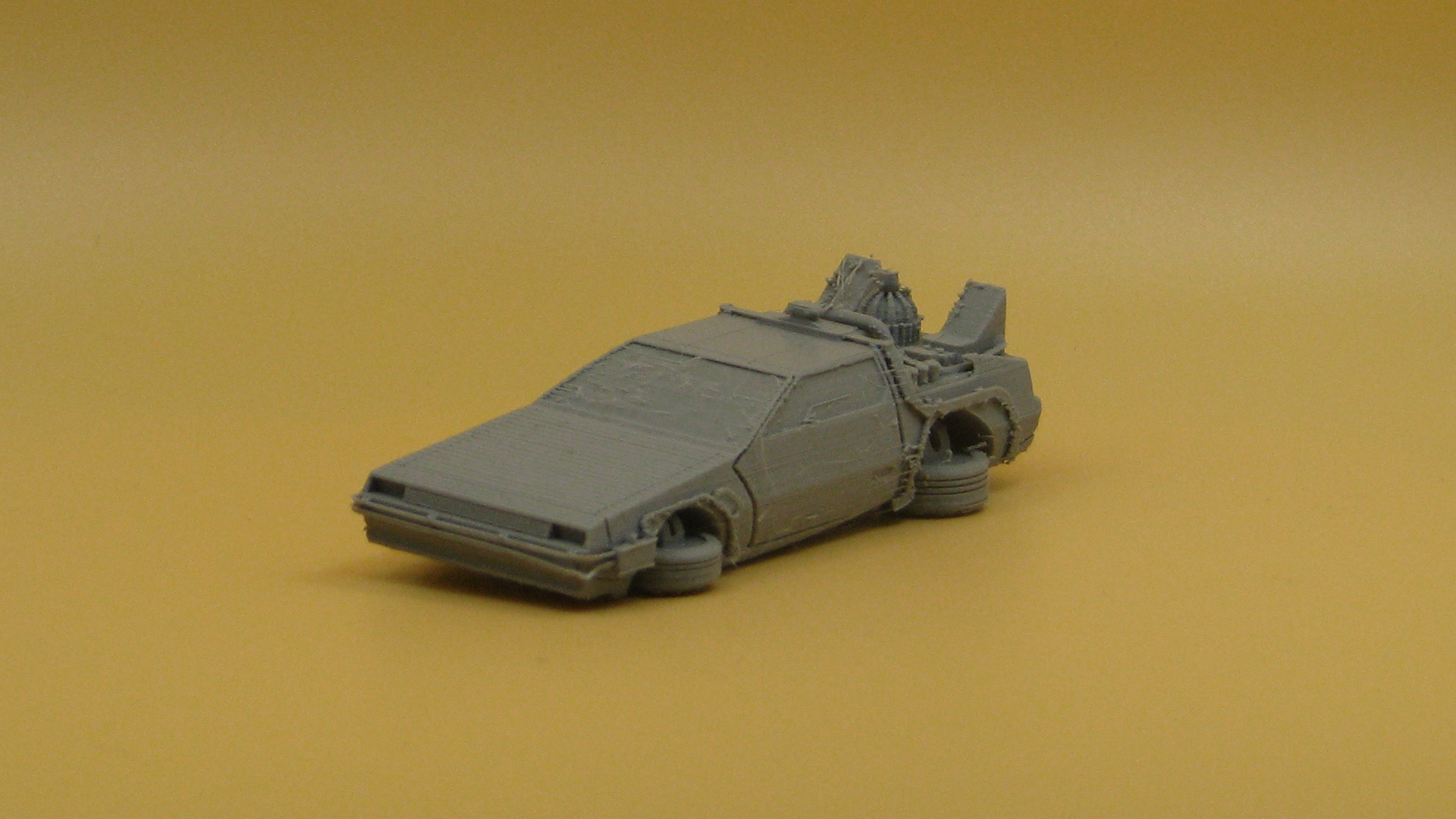
It’s been 37 years since Back to the Future first hit cinemas, and this time-travel movie has lost none of its charm. The fact it’s been turned into a successful musical says a lot about its appeal, though its sequel was wrong about us getting flying cars by 2015.
Speaking of which, this model features the DeLorean time machine in flying mode and also comes with a plume of smoke that, printed separately, can be used to mount it to a wall. The trade-off is that the back of the model is missing the time machine’s ventilation grilles but, compared to the other models we tried, this is by far the easiest to print.
Print this flat, with supports, with the wheels facing down. For support placement, use “touching buildplate.” Just be careful taking the supports off, yank too hard and you may remove the wheels.
3. Sandworm Bookends (Dune)
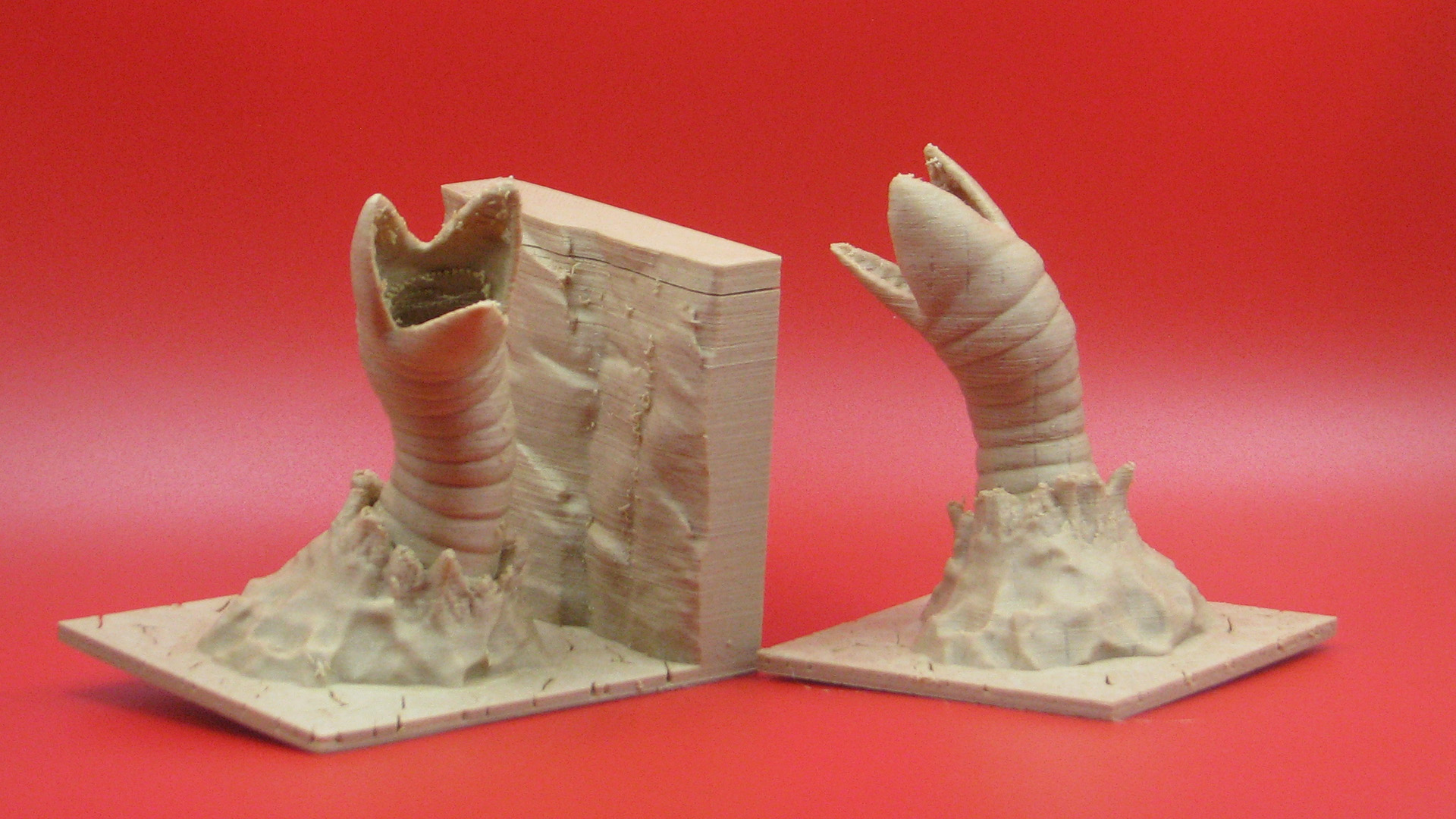
Remember the 1984 movie of Frank Herbert’s Dune? Director David Lynch, who also wrote the screenplay, would probably prefer to forget. He had his name taken off most cuts of the film and shies away from discussing it in interviews. But, whatever your opinion of the movie, the special effects were certainly impressive, the colossal sandworms in particular.
Now, you can have your own Sandworms standing watch over your books with these Dune sandworm bookends. Yes, PLA isn’t the heaviest material around, which is why you can remove the top of each bookend and insert weights. If you just want a sandworm, slice off the end piece in 3D Builder, or download a worm-only model here (opens in new tab). Whatever you choose, these should print without supports.
4. The Millennium Falcon (Star Wars)
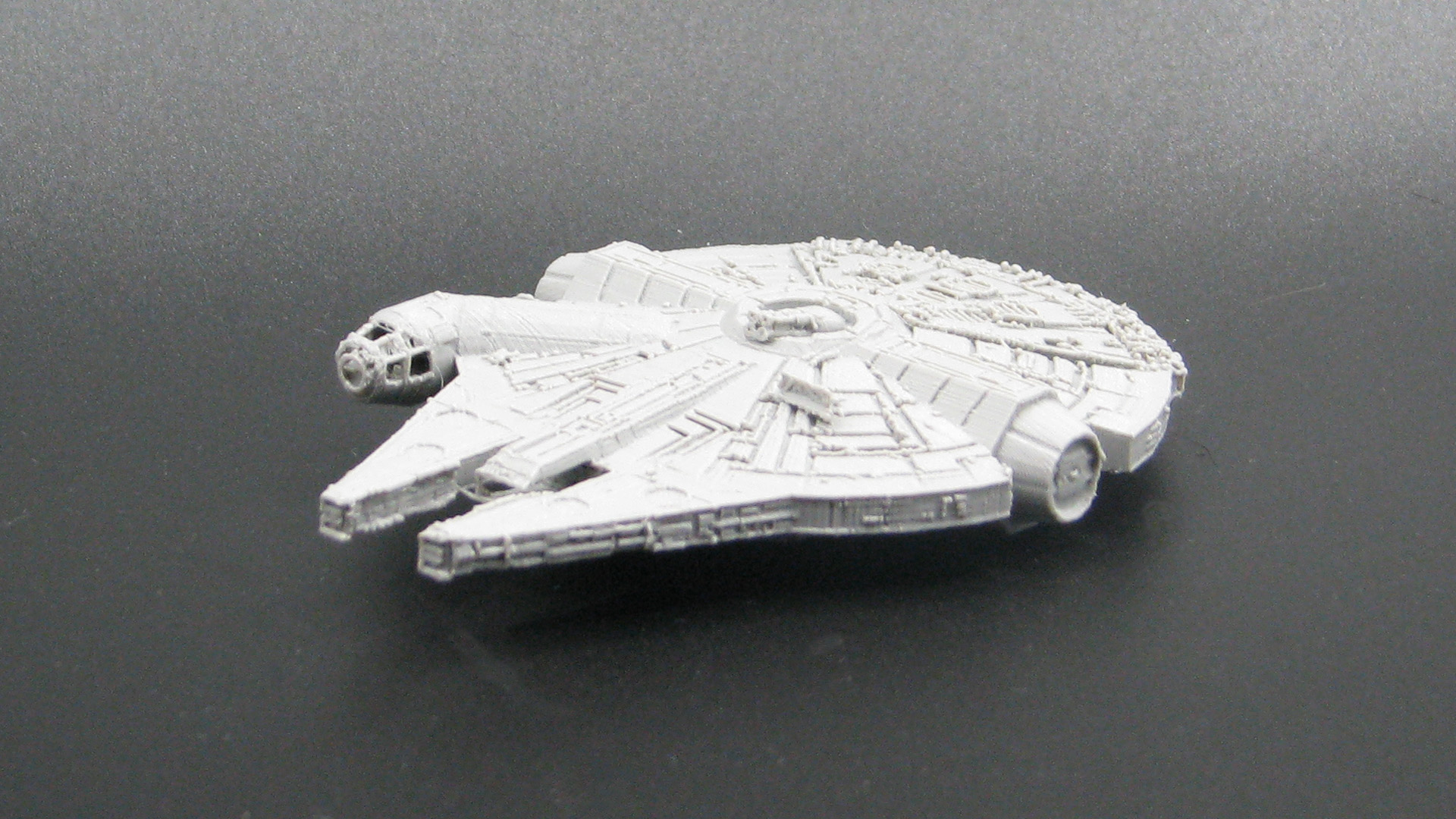
One of the most recognizable sci-fi spacecraft of all time, the Millennium Falcon has changed hands a few times. While Star Wars characters die, it’s such an iconic ship that, particularly in terms of merchandising, we can’t imagine any director or screenwriter would ever destroy the Falcon.
This download includes several versions of the craft including one with a square dish, another with a square dish and another as seen in the Solo movie. Whichever one you choose, printing the Millennium Falcon should be easy. Make sure the Falcon is engine down, pointing straight up and you’ve selected a raft. Print it without supports and you’re ready to make outrageous boasts about how fast it is.
5. The Rocinante (The Expanse)
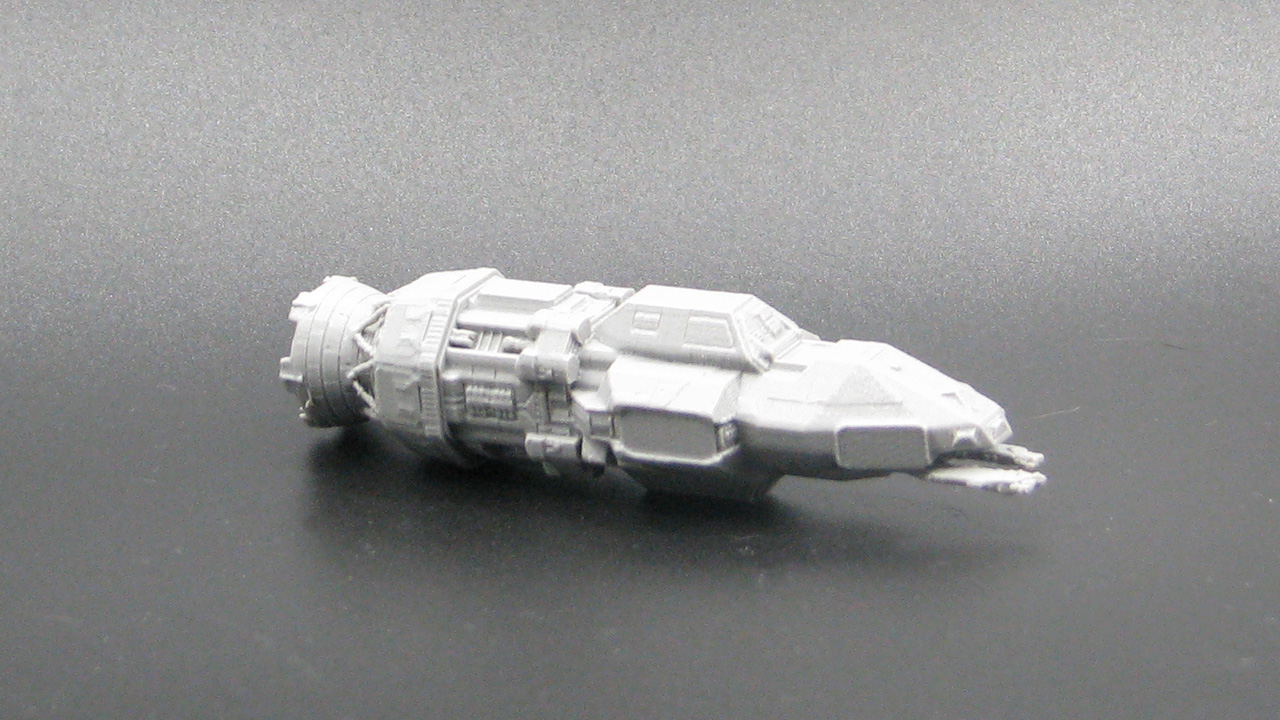
Gritty sci-fi show The Expanse is one of those rare sci-fi shows that got a second chance. Originally broadcast on Syfy, it was cancelled and then picked up by Amazon, before running for another three seasons. And while the show’s not generally as ship-centric as, say Star Trek: Discovery, repurposed Martian frigate The Rocinate plays a major part in the show.
When it comes to printing your own Rociante, you have a couple of choices. This download includes a single all-in-one model of the vessel which, printed vertically and with supports, is pleasingly show-accurate. Or, you can print out the individual parts, also included in the download, put them together and create a desk-dominating model of the Rociante.
6. The Tardis (Doctor Who)
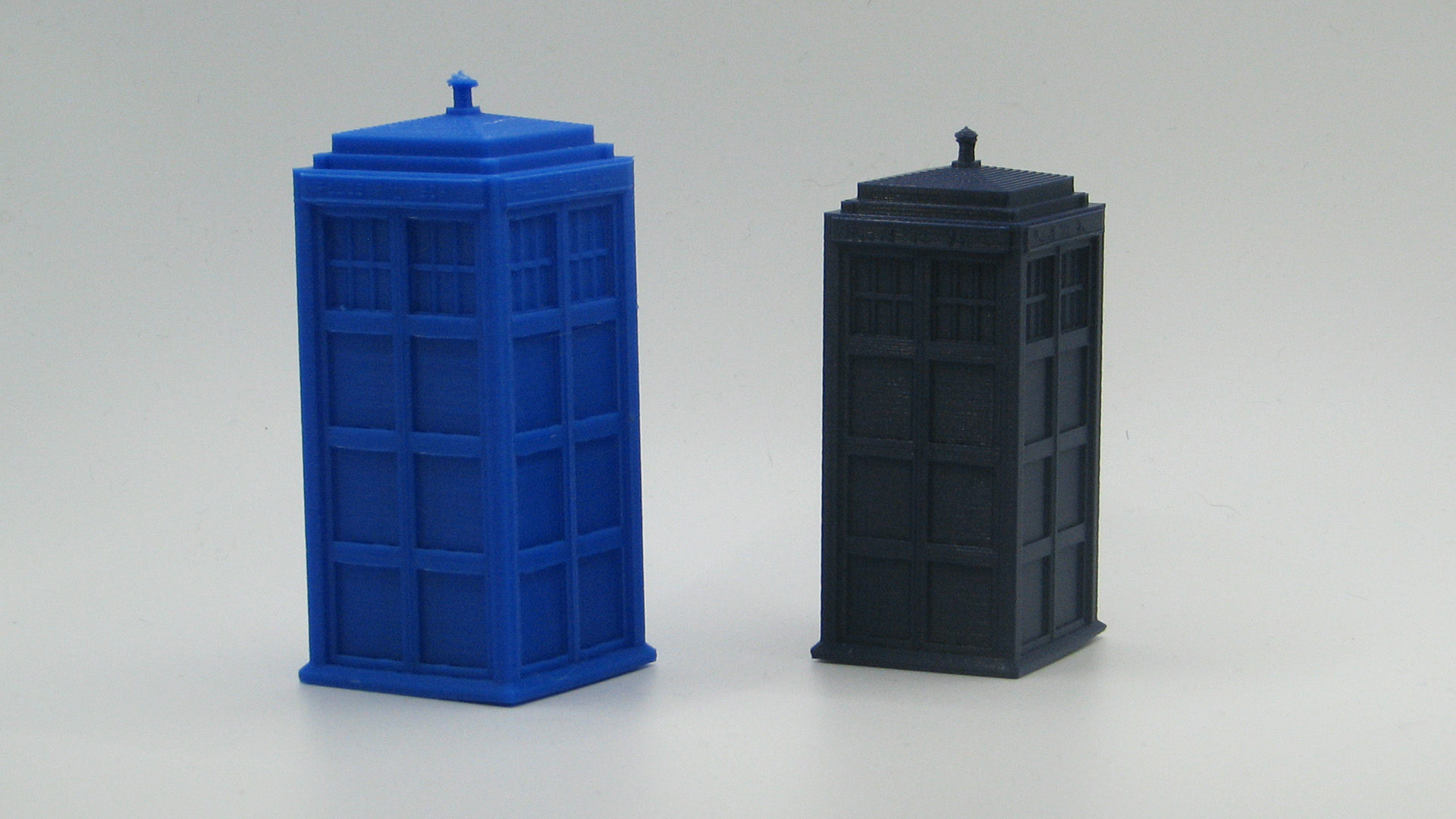
If there’s one vessel that’s more recognizable than the Millennium Falcon, it’s Doctor Who‘s Tardis. As The Moment puts it in Day of the Doctor, “You know the sound the Tardis makes? That wheezing, groaning. That sound brings hope wherever it goes.” But the Tardis’s appearance? That’s subject to change. And if you’ve got a keen eye, or pore over the many, many seasons of the show, you’ll notice that Tardis shapes, sizes and colors can vary with regenerations (insert your own filthy joke here).
This Tardis is whatever color you print or paint it, though whether or not the “Police Box” lettering is visible will depend on how large you print it. You can print this without supports, vertically oriented. And, unless your printer requires it — if for example, it lacks a heated build plate – you won’t need a raft either.
7. T-800 Head (The Terminator)
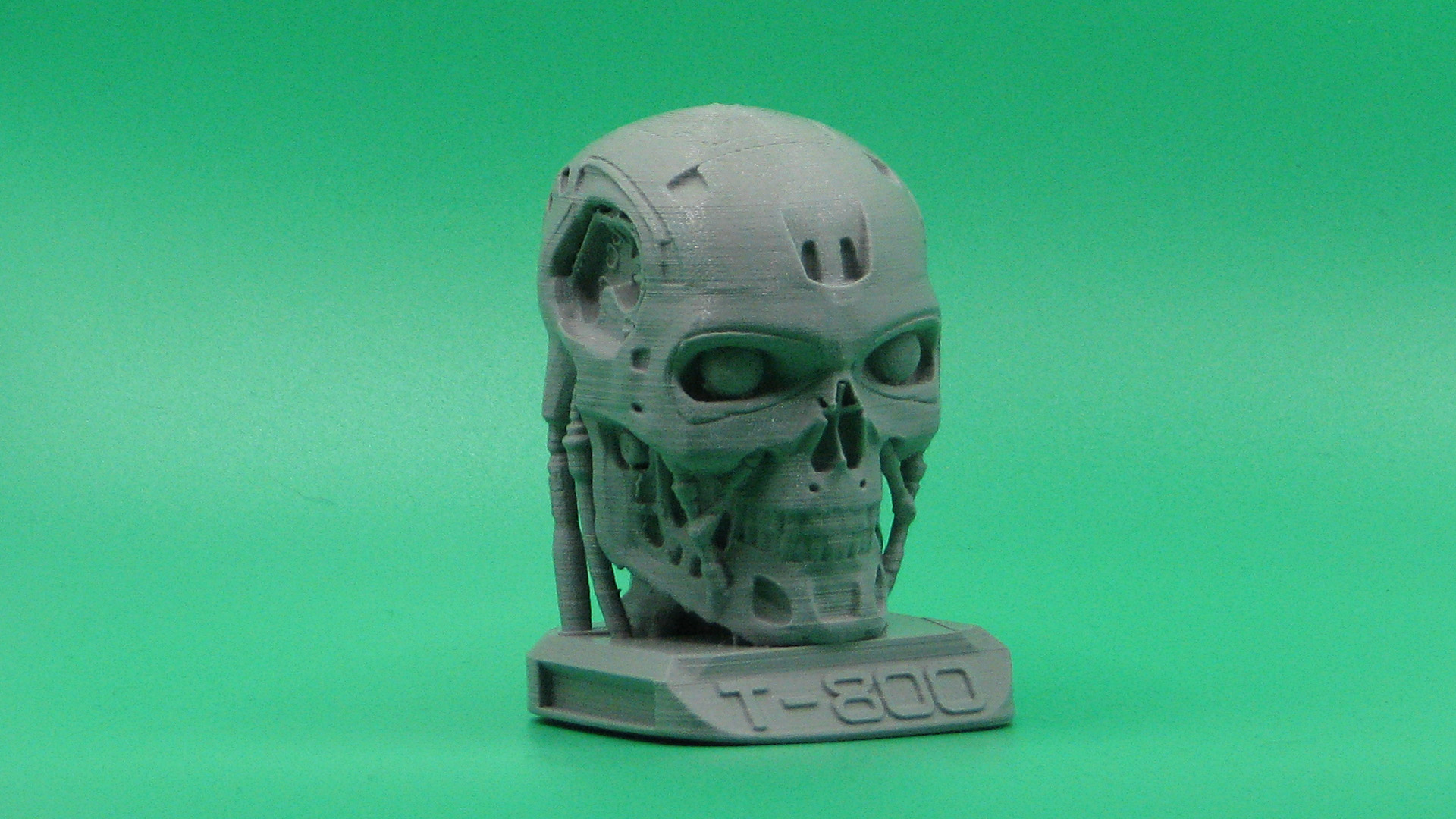
Terrifying. Relentless. Near unstoppable. No, we’re not talking about the Terminator itself, but Hollywood’s efforts to continue and/or reboot the Terminator franchise. Yes, Terminator: Dark Fate may have put things on hold for now but, mark our words, they’ll be back.
However, the original Terminator’s design, stripped of its flesh, remains absolutely terrifying. It certainly helps that the original movie made use of practical effects, instead of CGI. This model captures the living machine in all its horrifying detail and is relatively easy to print.
We say “relatively”, because there’s one thing to watch out for. The model comes with supports, and can be printed vertically without a raft. You remove the small supports under each side of the chin after printing but, if you’re not careful, you’ll snack the tubes running from the base to the neck.
We recommend you select “Remove All Holes” under Mesh Fixes in Cura, or whatever equivalent you’re using. Then, wait until the model has cooled before remove the chin supports. Take care and you’ll have an appropriately sinister Terminator model to mount on your movie shelf.
8. Light Cycle (Tron)
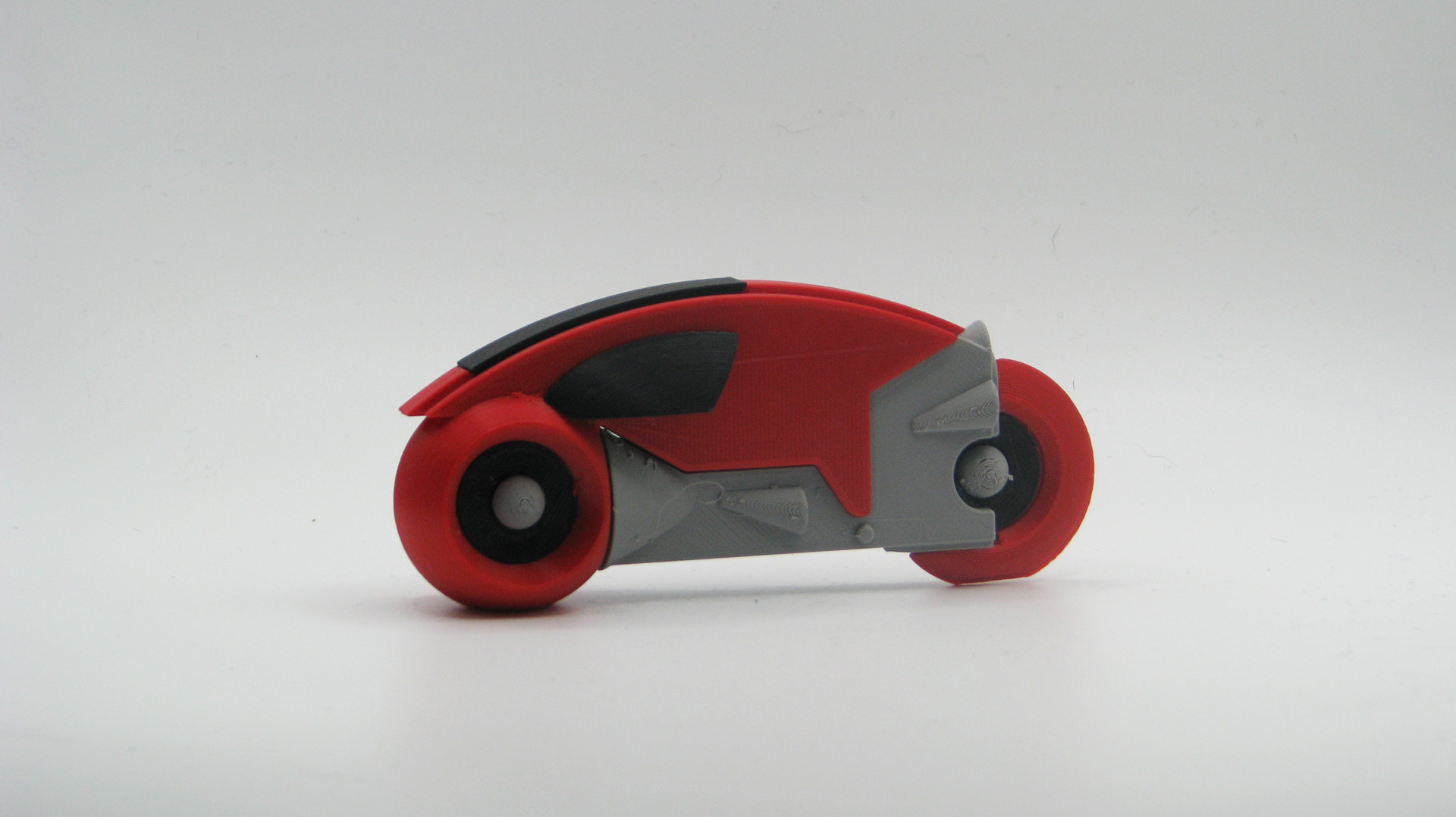
This movie was one of the first to use computer-generated imagery though a great deal of the animation was created using more traditional techniques. Still, the effect was remarkable, even by today’s standards. Unlike The Matrix, which saw AI taking over the world, Tron’s protagonist found himself trapped inside a computer, fighting to overthrow Sark and the Master Control Program, both portrayed by the late David Warner.
The Light Cycle fight is one of the movie’s most memorable sequences and thanks to this model, you can create your own light cycle. Yes, there are other light cycle models, also free, but this design is split into three files — black, grey, and color. The first two are self explanatory but, by printing the latter out in the color of your choice, you get to choose the color of your cycle’s body.
You will have to glue the sections together — you can also use the included but separate pegs, but we found that a little too fiddly and just used superglue. On reflection, we should have sanded the pieces before connecting them but the result is still striking.
9. The Xenomorph (Alien)
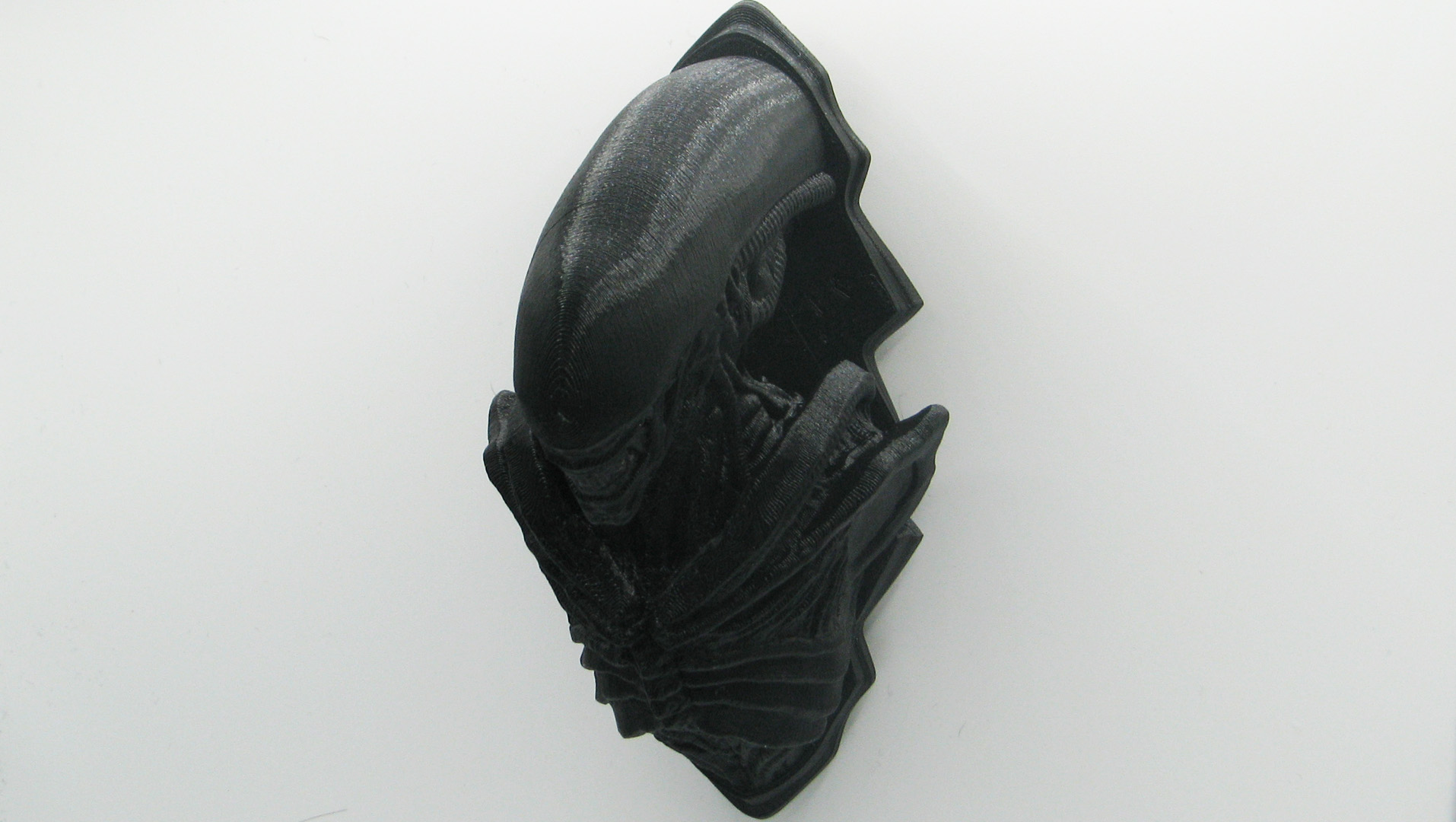
You could, technically, label Alien a creature feature but doing so would feel like an insult. Between Ridley Scott’s direction, Dan O’Bannon’s script, H.R. Giger’s design and Bolaji Badejo as the Alien/Xenomorph, it’s one of the most terrifying sci-fi horror movies to date. It was the perfect antidote to Star Wars, set in an eerily prophetic future where corporations, not governments, were the ones to push into space.
This model of the Xenomorph’s head and torso looks absolutely outstanding, but mounting it on your wall, using the hole on the back, takes things to the next level. The bigger you can print it the better — just imagine waking up in the middle of the night, stumbling out of bed and coming face to face with this. You don’t need any supports or a raft, either. Just orient the design so the alien is facing the ceiling and that’ll be enough.
10. Borg Tactical Cube (Star Trek: Voyager)
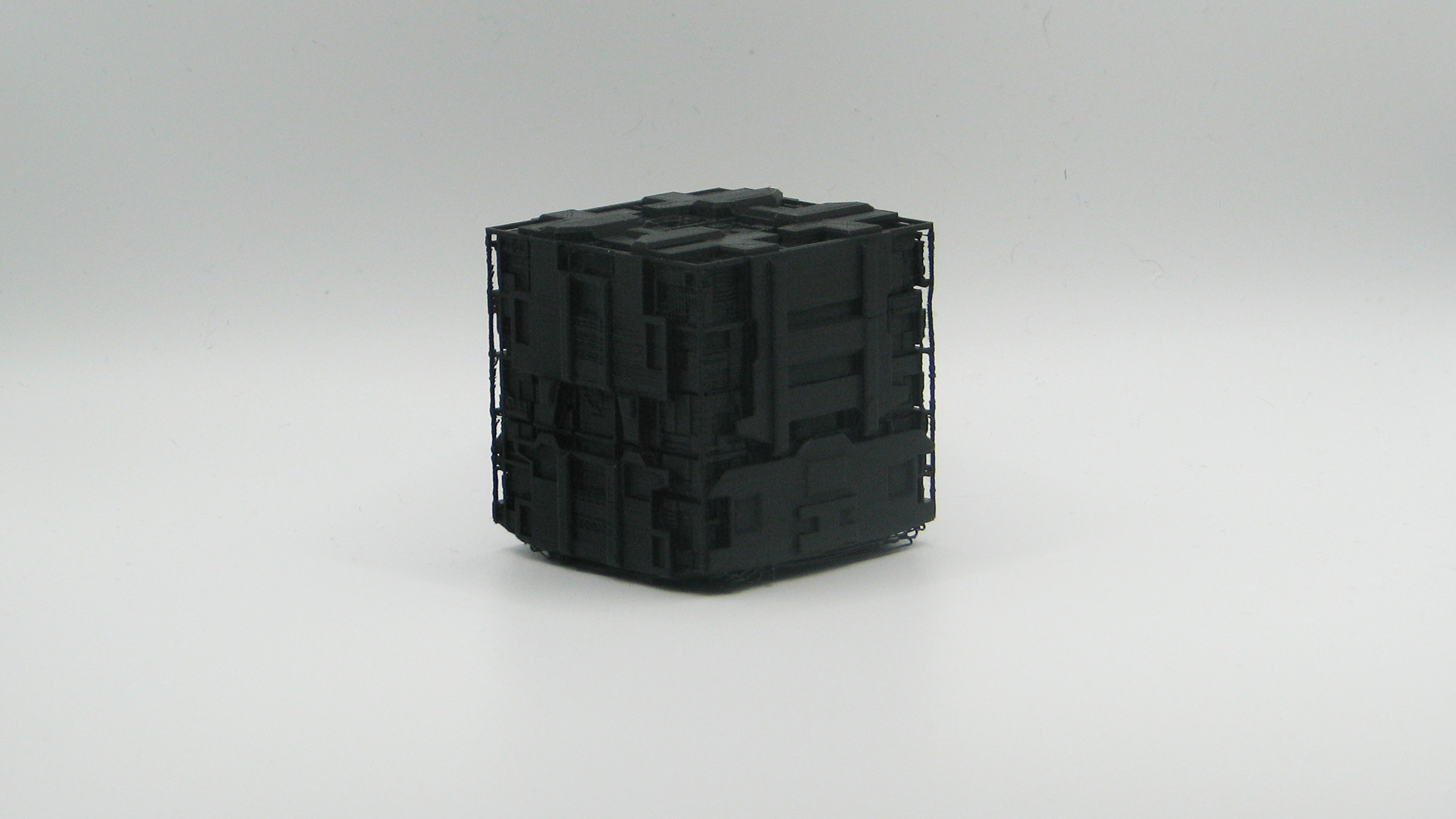
Think Star Trek: The Next Generation’s crew had it tough? Tell it to Voyager’s crew — stranded in an unexplored quadrant, they spent multiple episodes traipsing through Borg Space. And if the prospect of becoming a near-mindless Borg drone wasn’t enough, they had to deal with the Borg Queen being recast, twice.
Their trials also introduced the viewing public to the Borg Tactical Cube, a heavily-armored version of the regular Assimilation cube and it’s that model you’ll be printing here. You can find models of the original Borg Cube but that’s more challenging to print, thanks to the amount of pipework.
To print the Borg Tactical Cube, you’ll need to use a raft and, if you want it to be presentable from all sides, supports touching the base plate. You can leave the supports off but it’ll make the bottom of the model fuzzy. Being a cube, it’ll take you a while to print, but the results should make the Borg Queen proud.
3D printing tips
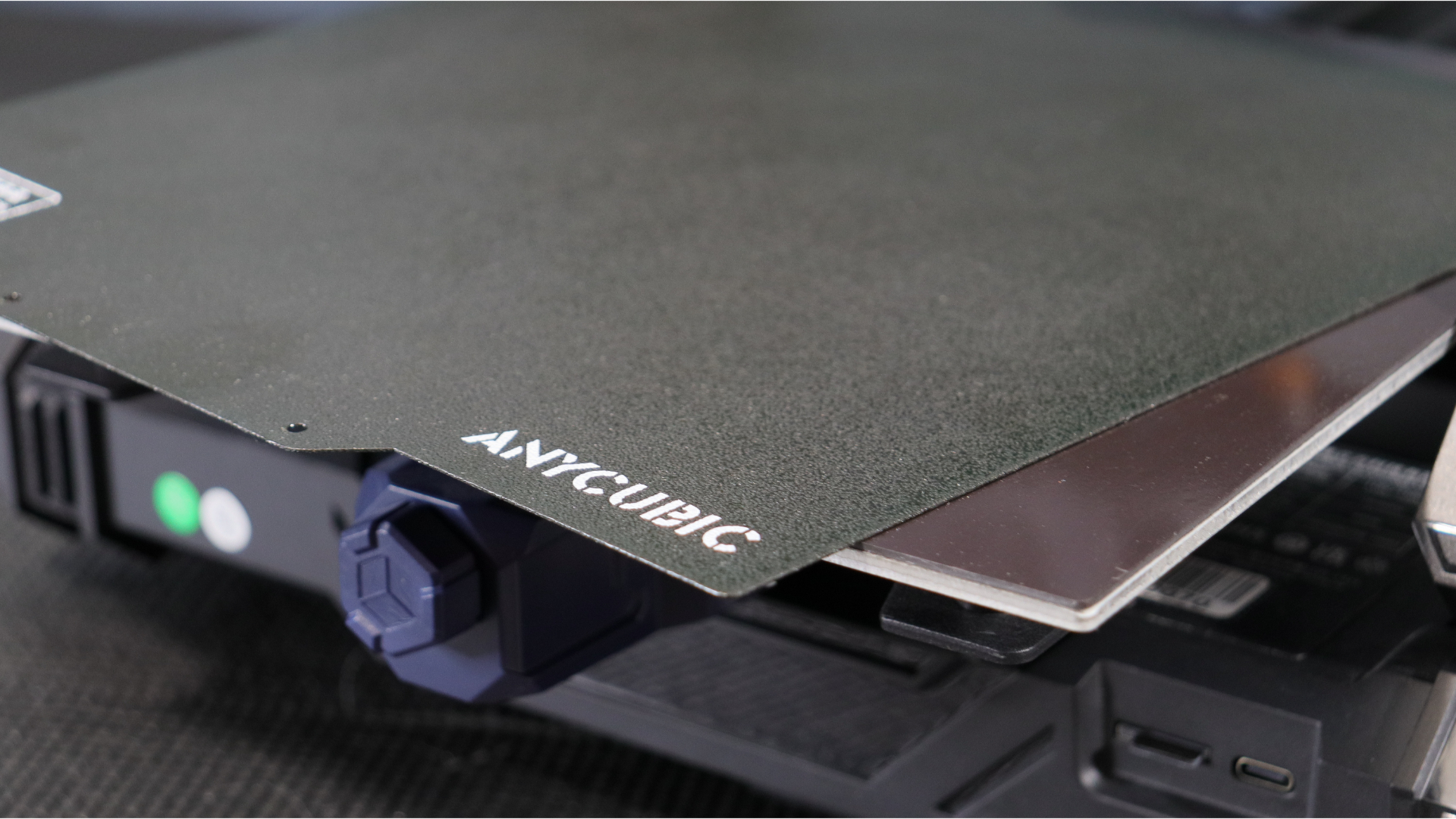
We’ve printed them using a PLA printer on an FDM printer (you’ll need to put these models through your slicing software) but you should also be able to use a resin printer.
So what’s the catch? There isn’t one, but we do have a couple of tips to make sure things go smoothly. Firstly, make sure that your slicer’s default printing temperature is set to number within your PLA reel’s temperature range; it varies between manufacturers and materials. And if you have other problems printing, try slowing down your printer speed.
Finally, to make the most of your prints, remember to sand down any rough edges. Our models are pictured fresh off the printing bed but if you put in a little more effort you can make them look even better.

